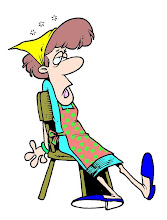A biography is simply the story of a life. Biographies can be just a few sentences long, or they can fill an entire book—or two.
Very short biographies tell the basic facts of some one's life and importance.
Longer biographies include that basic information of course, with a lot more detail, but they also tell a good story.
Biographies analyze and interpret the events in a person's life. They try to find connections, explain the meaning of unexpected actions or mysteries, and make arguments about the significance of the person's accomplishments or life activities. Biographies are usually about famous, or infamous people, but a biography of an ordinary person can tell us a lot about a particular time and place. They are often about historical figures, but they can also be about people still living.
Many biographies are written in chronological order. Some group time periods around a major theme (such as "early adversity" or "ambition and achievement" ). Still others focus on specific topics or accomplishments.
Biographers use primary and secondary sources:
Primary sources are things like letters, diaries, or newspaper accounts.
Secondary sources include other biographies, reference books, or histories that provide information about the subject of the biography.
To write a biography you should:
Select a person you are interested in
Find out the basic facts of the person's life. Start with the encyclopedia and almanac.
Think about what else you would like to know about the person, and what parts of the life you want to write most about. Some questions you might want to think about include:
What makes this person special or interesting?
What kind of effect did he or she have on the world? other people?
What are the adjectives you would most use to describe the person?
What examples from their life illustrate those qualities?
What events shaped or changed this person's life?
Did he or she overcome obstacles? Take risks? Get lucky?
Would the world be better or worse if this person hadn't lived? How and why?
Do additional research at your library or on the Internet to find information that helps you answer these questions and tell an interesting story.
Write your biography. See the Tips on Writing Essays and How to Write a Five Paragraph Essay for suggestions.
